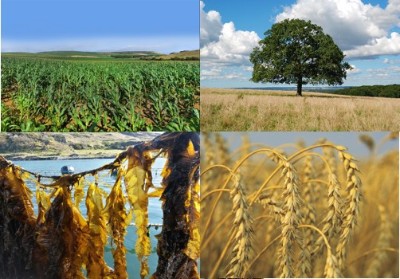To access our News Reviews, subscribe to our Information Package free of charge here.
Foreword
 According to the IUCN, palm oil
accounts for 35% of global vegetable oil, using just 10% of the land allocated
to all oil crops. Further, nine times more oil per unit area can be produced
via oil palm, in comparison to other oil crops. This, its associated relative
low cost and wide range of applications – including in foods like cake,
chocolate, and margarine, as well as cosmetics, shampoo, and cleaning products,
and as a feedstock for biodiesel, has led to an increase in demand for palm
oil.
According to the IUCN, palm oil
accounts for 35% of global vegetable oil, using just 10% of the land allocated
to all oil crops. Further, nine times more oil per unit area can be produced
via oil palm, in comparison to other oil crops. This, its associated relative
low cost and wide range of applications – including in foods like cake,
chocolate, and margarine, as well as cosmetics, shampoo, and cleaning products,
and as a feedstock for biodiesel, has led to an increase in demand for palm
oil.
According to Our World in Data,
oil palm crop production increased almost four times over the 20-year period
from 1998 to 2018, from 18.2 million tonnes to 71.5 million tonnes. However,
with the pandemic, and rising awareness regarding unsustainable palm oil
production via deforestation, causing a decline in biodiversity and native
wildlife populations, and methane emissions from palm oil refinery wastewater,
global production has somewhat stabilised in recent years. Malaysia is currently the second largest
producer and exporter of palm oil in the world, after Indonesia. In mid-March
2022, Malaysian palm oil futures were down almost 10% in a single day. Crude
Palm Oil Futures (FCPO)...
Other News this Month Includes:
Policy
- RSB Board approved modifications of RSB Standards for palm-based
agricultural processing residues
Markets
- Drax stops sourcing biomass from Russia
- Eni and the Republic of Benin signs an agreement for jointly initiatives in
the agro-industrial sector
- More...
Research & Development
- Cemvita launches the Gold Hydrogen Program for subsurface biomanufacturing
of hydrogen
- Machine learning-informed and synthetic biology-enabled semi-continuous
algal cultivation
- More...
Wood & Crop
- UK Pellet Council and FSC remove recognition for Russian and Belarus
pellets
- The viability of South African sugarcane as feedstock for sustainable aviation
fuel production
Other Feedstocks
- Honeywell introduces new technology to produce key feedstock for plastics
Biorefinery
- Port of Rotterdam Authority raising land level for ‘green’ companies
- Techno-economic evaluation of a biorefinery to produce several platform
chemicals from spruce
Events
Feedstock Prices